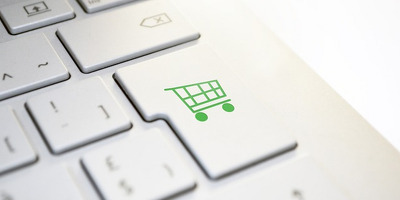How to Keep Your Money Safe When Shopping Online
How to Keep Your Money Safe When Shopping Online
In Canada, the practice of spending money online is becoming more and more commonplace with each passing year. In 2020, for example, the Canadian e-commerce market was estimated to be worth a cumulative $31.129 million, with a compound annual growth rate (CAGR) of 8% forecast for the coming years. Over two-thirds of the population currently shop online.
Of course, that increased digital spending does mean that patrons are more susceptible to cybercrime. The internet opens up a whole new array of retail possibilities, but it also entails a new raft of risks and pitfalls which unscrupulous hackers and thieves are only too willing to take advantage of. With that in mind, here are a handful of top tips to keep yourself and your money safe online.
Use only safe networks
We’re all aware of the convenience of public Wi-Fi networks, especially when they don’t come with a password to navigate. But while they might be an easy way to look up directions or check the weather, they should never be used to conduct a personal or commercial business. That means that you should only ever log into any security point via a network that utilizes WPA-2 protocol encryption or another robust alternative.
Enable 2FA
Have you heard of two-factor authentication (2FA)? This ingenious innovation adds an extra layer of security to your account by requesting you to input a secondary piece of information alongside your password or access code. In this manner, a cyber thief may be able to steal your log-in information, but without access to your phone or email address account, they’ll still be powerless to get at your assets.
Check the sites you use
As well as the network you’re surfing, you must also guarantee that the sites you visit have adequate security protocols in place. Look for a tiny padlock in the address bar or an HTTPS:// (as opposed to just an HTTP://) at the start of the domain name to verify that the site uses a secure sockets layer to encrypt your data. Also be aware of phishing scams that may take you to fake pages that resemble the real thing, but are merely set up to steal your details.
Employ an e-wallet
Many people are concerned about inputting their sensitive information into a website for fear of being hacked. As long as you use reputable domains, such an outcome shouldn’t occur, but you can enhance your security online further by using an e-wallet to store your spending money. For those who prefer to shop with cryptocurrency, the same advise applies. Do your due diligence and scour the market to find a top-notch offering such as the MetaMask wallet, which deploys encryption technology to keep your crypto assets safe from would-be thieves.
Read user reviews
Last but not least, it’s a good idea to listen to the opinions who have been there and done that when it comes to conducting business with a certain retailer online. That way, you’ll be able to ferret out sites that offer a better user experience in comparison to others, as well as those which provide robust customer support mechanisms. Then, even if the worst does come pass, you know that you’ll have someone reliable in your corner to help you recoup your money.
Follow these five steps and your money should be as safe as possible from the unwanted advances of criminals and thieves when shopping online.
By
Mo
More Online shopping

Geek Culture in Canada: From Comics to Collectibles
Geeks are individuals with a deep passion for a subject, often becoming true experts. Once seen as awkward or unfashionable, they now embrace their interests proudly. This article explores Canadian geek culture, from comics and collectibles to fan events, conventions, and communities.

Your Guide to Stunning Home Decor: Creating Spaces You'll Love
Creating a home that reflects your unique personality is more than just arranging furniture or picking stylish decor. It’s a thoughtful process of designing a space that suits your lifestyle, brings comfort, expresses your taste, and makes you feel happy every time you walk in.

A BravoCoupons.ca Review - The Pros and Cons
In our modern world, most people want to try and make every dollar go as far as it can. Thankfully we live in a digital paradise that has many ways to easily save money without having to give up on quality. One such platform is the BravoCoupons coupon site.

Sustainable Furniture: The New Hype for the Future
By using eco-friendly items every day, more and more people are choosing to live a sustainable and ecologically friendly lifestyle. In the case of the furniture sector

Top 6 Great Reasons to Replace Windows
Windows replacement may not be at the top of your list of home repair jobs. It is, nevertheless, a makeover that might give several advantages to you as a homeowner.

Autumn Decor and Home Maintenance Ideas
It is a great time of year to transform your home into a cosy, inviting retreat. If you are planning a bigger renovation or redecorating a room, always prepare well in advance and ensure you have the right materials and tools to hand. This will make it easier to complete the task or project.

The best thermal imaging drones
The first steps in the development of thermal imaging were made at the end of the 19th century, but the first significant breakthrough in this field was made possible by the Dutch physicist Willem Casteren.

10 Must-haves for Men’s Wardrobes
In our fast-paced society, you navigate different settings as the day progresses. An important meeting at the office? No problem. Picking up groceries on your way back home? Consider it done. Going for a nice walk outdoors with the dog? Sign me up.